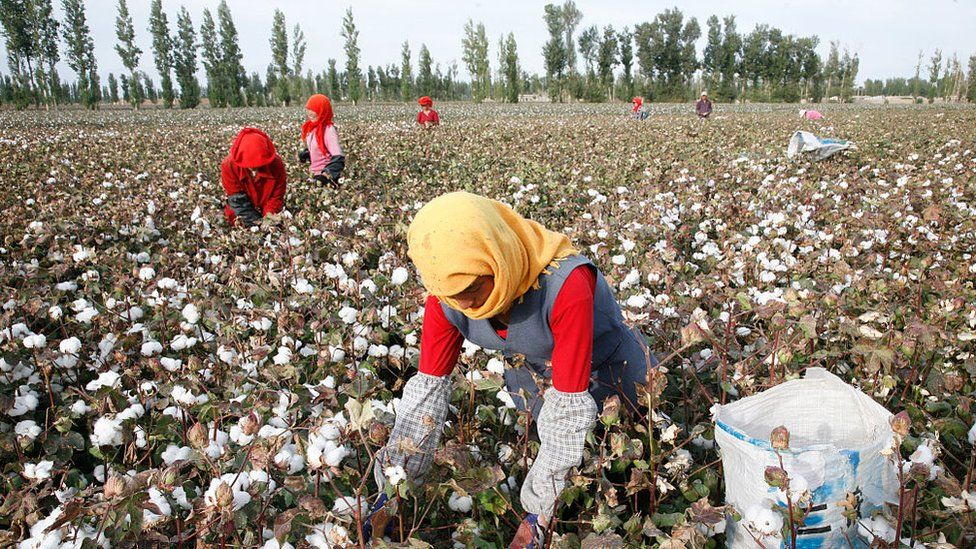 The Chinese government has warned clothing brand H&M it will not earn a penny in the country if it refuses to buy cotton from the Xinjiang region.
The Chinese government has warned clothing brand H&M it will not earn a penny in the country if it refuses to buy cotton from the Xinjiang region.
H&M and other western brands are facing a backlash in China after they expressed concern about the alleged use of forced labour in cotton production.
China has been accused of forcing members of the mostly Muslim Uyghur minority to pick cotton in Xinjiang.
China denies this and, in recent days, critical brands have faced boycotts.
"I don't think a company should politicise its economic behaviour," said Xu Guixiang, a Xinjiang government spokesman, at a news conference on Monday. "Can H&M continue to make money in the Chinese market? Not anymore."
Mr Xu said the decision by some brands to stop buying Xinjiang cotton was "not reasonable", comparing it to "lifting a stone to drop it on one's own feet".
H&M has not yet responded to a request for comment from the BBC.
The Chinese spokesman's remarks cast doubt on the Swedish company's future in one of the world's largest markets.
They also indicate Chinese government support for the recent Chinese consumer boycott of products from H&M and other global retailers.
China's boycott initially targeted Nike and H&M, with reports of the latter's products withdrawn from major e-commerce platforms and some of its stores being shuttered across the country.
But the boycott has widened to include Burberry, Adidas and Converse, among others.
The cotton row erupted after the US and other western governments ramped up pressure on China over alleged human rights abuses in Xinjiang.
China is accused of committing serious human rights violations against Uyghurs in the region.
n December the BBC published an investigation based on new research showing China was forcing hundreds of thousands of minorities including Uyghurs into manual labour in Xinjiang's cotton fields.
Last week several western countries - including the UK, US, Canada and European Union members - imposed sanctions on officials in China over the situation in Xinjiang.
China has repeatedly denied the allegations of abuse and has hit back with retaliatory sanctions on European officials.
What is Xinjiang and who are the Uyghurs?
- Xinjiang, China's biggest region, produces about a fifth of the world's cotton. An autonomous region in theory, in reality it faces restrictions which have only increased in recent years
- Millions of China's Uyghurs, a Muslim minority that sees itself as culturally and ethnically close to Central Asian nations, live in Xinjiang
- In recent decades, mass migration of Han Chinese (China's ethnic majority) to Xinjiang has fuelled tensions with Uyghurs which has at points flared into deadly violence
- This has resulted in a massive security crackdown and an extensive state surveillance programme, which critics say violate Uyghur human rights. China says such measures are necessary to combat separatism and terrorism
- Uyghurs have been detained at camps where allegations of torture, forced labour and sexual abuse have emerged. China has denied these claims saying the camps are "re-education" facilities aimed at lifting Uyghurs out of poverty.
Source: BBC News